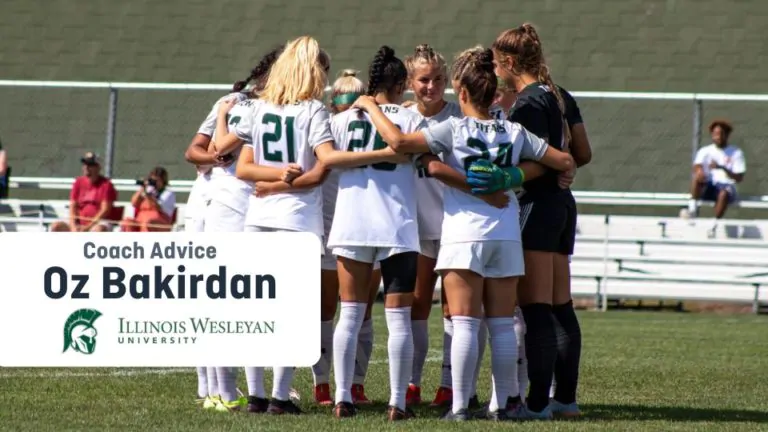Let's face it: it sucks to sit on the sidelines. Every athlete who takes part in team sports wishes they were a starter or involved with their team's success on the field. But sometimes it doesn't always work out that way. Whether it's because of tactical reasons, the stage of development you're at, or the relationships you have within the team, there are several reasons why you could be sitting on the bench instead of out on the field. However, it's important to stay hungry, motivated, and handle yourself in the best possible way while you ride the bench. Here are 7 tips on how you can cope with no game time and help get your name on the starting lineup.
1. Be Patient
Patience is key when you're not getting the game time you'd like to be getting. Tolerating time on the bench can be the best thing to do as it shows the coach that you respect them and their decision to leave you out of the team. Patience is a great skill to practice as it allows you to control unwanted emotions and will also help you stay focused when you compete. Being patient also allows you the time to impress during practice and an opportunity to see the game from another viewpoint. Knowing and judging when to stop being patient and to start approaching the coach by asking questions on why you are not playing is the tricky part and is a skill in itself! Only you know when the time is right, and situations will differ with every individual.
Related: Will D1 Freshmen Get Playing Time?
2. Work Harder Than Everyone Else
Doing extra work on and off the field is a great way to boost your development and to show your coaches that you're doing the utmost to gain a starting spot within the team. Yes, it can be demotivating to know that sometimes hard work doesn't always get rewarded, but doing extra runs, lifts, technical work, helping with equipment, and all the other small things on a regular and consistent basis can be beneficial to your performances and the way you are perceived by coaches and your teammates. Remember tip #1 – patience is key!
3. Communicate with Coaches
Talking to your coaches is a top tip to understand how you can improve and what they want from you to be able to get more game time. It's a great opportunity to have clarity on their expectations of you, as well as being able to develop a stronger relationship that's open and honest about your game. Having conversations with your coaches can also help you understand your role within the team (see tip 5) and determine whether you're moving in the right direction within the program or should consider the option of transferring if things aren't going too well.
Related: Knowing When to Transfer
4. Support your Teammates
Being part of a team means showing support to your teammates, no matter what situation you are in yourself. Being genuine, open, and honest about their performances by showing support or giving them advice on certain things they can do better from your perspective can go a long way. With this attitude, you may see a difference in how your teammates approach you and reciprocate your energy by supporting you during practice and games.
5. Understand your Role
Being able to understand your role within a team shows a lot of maturity and can even maximize how you perform during practices and games. If you're a freshman and find yourself not seeing the field that often, it may be because the coach wants you to develop first and build you up before becoming a regular starter – so don't sweat it! Reverting to tip 3 (communicating with your coaches) is also important to understand what your role will be in the team, clarifying this during the recruitment process. Roles can differ from being a regular starter to being a rotational player or a squad player that pushes your teammates to do well every day. If you're unhappy about your role within the team, talk about it openly with coaches and people you trust, and follow the other tips in this article to try and help change your situation!
6. Learn by Observing
Using performance analysis is a key resource to look back on your previous performances, understand where you can improve, and to implement the solutions or changes the next time you go out and play! Studies have shown that video analysis can make a significant difference to an athlete's game. So, sitting down by yourself or with a coach or teammate and reviewing some plays you are involved in can improve your game technically, tactically, physically, or even psychologically!
Related: How to Deal with Not Getting Playing Time
7. Be Proactive
Finally, being proactive is important as it will help you develop good habits in and around your team environment, as well as in everyday life. Ask and answer questions aimed towards teammates and coaches, be involved within conversations, show that you are open and willing to learn, help set out or collect equipment during practice, and make sure that your body language is always positive – no matter how you are feeling! Doing these little things and constantly being proactive can have a major positive effect on how you are viewed by your coaches and how your teammates view you too!
Have an idea for a story or a question you need answered? Want to set up an interview with us? Email us at [email protected]
* Originally published on May 11, 2023, by Rhys Davies







